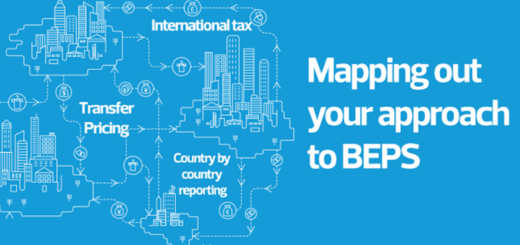NEW GREEK TAX REGULATIONS 2012 and 2013
NOTE: THIS PROPOSAL HAS BEEN WITHDRAWED FROM THE PARTIES.
A NEW TAX LAW WILL BE OUT IN JANUARY 2013.
The new tax bill brings the “upside down” to the income taxation from every source, as its changes are profound. At the same time, it tries to give a high dose of simplification to the whole system by eliminating many of the provisions of the Greek Code of Books and Records and by rationalizing the fines, in order to allow its payments by those, who are found to violate tax laws.
The draft law should be “passed” by the Parliament no later than the end of December, while from those new tax regulations the government has estimated a raise of revenues of over 2.5 billion euros.
Some of the tax reversals that come up with the new bill are, the repeal of tax cuts, the new reduced living items, the removal of additional tax-free limits for children, new tax bracket for earners and pensioners, and a single tax of 28% for all professionals and businesses.
In particular, those changes to the tax legislation are based on the latest scenarios that have fallen on the table of the Greek Ministry of Finance, which are the following:
– The introduction of three separate tax rates for income from wages-pensions, rents and liberal professions – sole proprietorships.
The scale of the employees will have three levels and zero tax free. The first step will be at a rate of 21% and will be applied to income of EUR 26,000, the second step will involve income from 26,001 euros to 48,000 euros at the rate of 36% and the third and last step will be applied to income in excess of 48,000 euros at the rate of 45 %.
In the position of the tax free threshold, a tax credit of € 1,950 is established, which will be received by all those with income up to € 18,000. For incomes from 18,000 to 29,000 euros the discount will be reduced by € 50 per € 1,000 of income and higher income will be reduced by an additional 100 euros for every 1,000 euros extra income. According to this system, employees with income exceeding 48,000 euros will not have a tax deduction. According to this calculation, there will be a tax relief for those with income up to € 25,000 and burdens for those with higher income.
– Levying a tax rate of 28% on net income for self-employed individuals and businesses from the very first euro.
With that scale of employees, it is obvious that will be taxed those who:
• Have a declaration of commencement of operations until December 31, 2011, are based in their home and have up to three employers.
• Submit a statement of work for the first time for the year of entry and for the next two years and receive income from individual commercial business or a profession.
For the portion of the income till 50,000 euros the tax rate will be 26%, and for higher income, 33%. Employees with clipboard will be taxed at the rates of employees, if they are based at their home, they have up to three clients and they have already realized commence operations until 31/12/2011. At the same category are also those, who start working out at a later date and for the first two years of practice.
– A new scale with three levels for taxing of income from rents is also introduced. These rates have not yet been determined, but there will be no tax-free threshold and the maximum rate will be 45% and will be applicable to rental income over € 100,000.
– Most tax exemptions from income taxation of individuals are eliminated.
Only the tax credit for premiums, medical expenses and visits to doctors is maintained; especially, it will be recognized for medical expenses by the tax authorities and also, only the amount that exceeds 10% of income, will be deducted. Ie, for an employee with an income of EUR 15,000, a tax credit will be recognized and it will deduct the portion of the medical expenses in excess of 1,500 euros.
– Numerous articles of the Code of Books and Records are repealed in the first stage, and are replaced with provisions that provide for simplified display transactions.
– The fines for tax offenses are significantly reduced, if the taxpayer pays them back within a specified time period.
– Net income of partnerships and limited partnerships will be taxed in their entirety at a rate of 28%, while now are taxed to half at 20% and the rest is based on the scale of personal income tax rates (that is to say, from 10% to and 45%, after previously be allocated to the two biggest partners as a ‘ business pay “.
– The net profits of limited companies and limited liability companies will be taxed in their entirety at a rate of 28%, either as retained or as distributed dividends to shareholders or partners, while today they are provided for 20% tax on undistributed profits and an additional 25% (total 42.5%) for the distributions (dividends).
– The elimination of additional tax credit, which was eligible for employees at border areas as well as special favorable tax regimes applicable to small islands of our country with a population of up to 3,100 residents.
– The removal of exemptions from income taxation that was applicable to social benefits. Those allowances awarded today by the welfare organizations etc. are now considered as an income from employment.
New tax scale for wagers – pensioners
There are also some corrective interventions that have to be taken place to the tax scale for employees and retirees. According to the latest scenarios elaborated by the Ministry of Finance the tax-free income threshold of 5,000 euros remains, and also the 8 tax brackets and the top tax rate of 45% are kept.
However, the intentions of the economic team is to provide tax relief for employees and pensioners with low and middle incomes up to € 26,000, who are most affected by the crisis due to consecutive reductions to their salaries. In this context, there are designed several changes-corrections at the income scale, up to 26,000 euros, which will lead to lower tax burdens, while for those with higher incomes they will emerge larger charges.
New living presumptive
On the table has dropped a proposal to reduce the living presumptive up to 37% to residences and up to 44% to private cars. Also, it is proposed a reduction of 25% for vessels open type, high speed or not. The plan also provides for a reduction of the minimum objective cost for taxpayers to 2,000 euros from 3,000 euros for a single person and € 3,000 from € 5,000, which currently applies to spouses who submit a joint tax statement.









